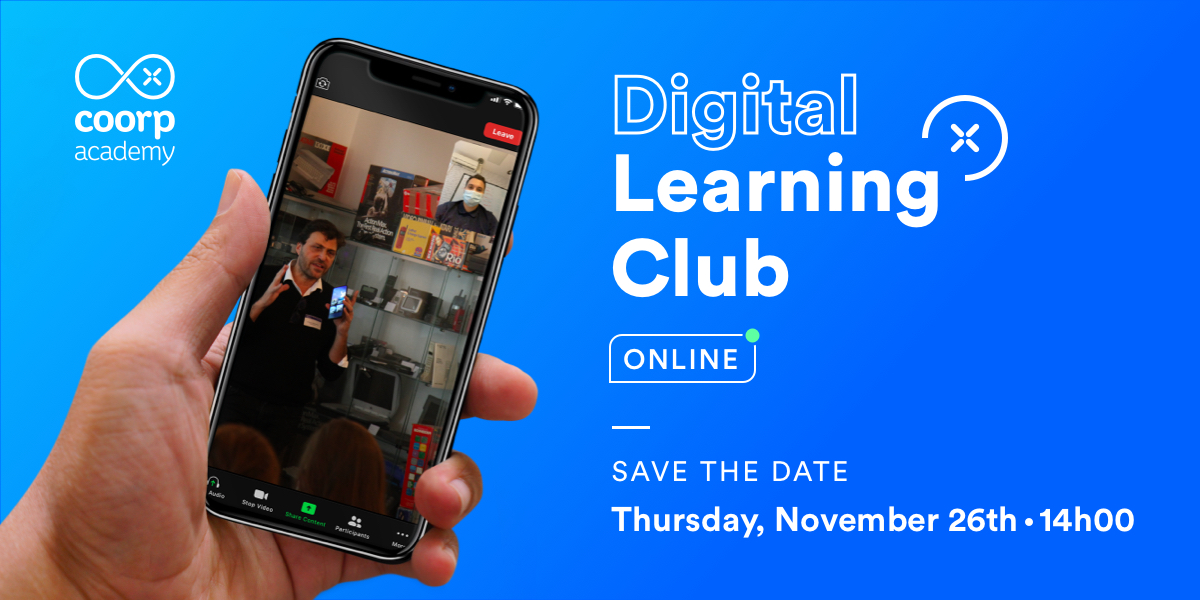Training is above all a human adventure. It puts people at the heart of the company and helps the talents that make up the company to progress. Through the story of my experience, I would like to try to answer the following question: does the size of the company count when it comes to training?
Having had the opportunity to work within groups of different sizes and operating in different sectors or regions, I have always noticed a common denominator in these experiences: my desire to learn. Whether it was learning how to produce an editorial calendar, something very concrete, or developing my adaptability, a so-called soft skill, the size of the company was never a hindrance to progress. But then, if size doesn’t matter, what’s left to measure? To help you understand, let me tell you the story of my rise in skills.
Here we are 3 years ago, I land in Montreal, and I discover the queue to enter the bus. If I decided to join Céline, it’s not for the love of poutine but for an internship in a big international cosmetics company. The dream – with 20 degrees less. With more than 8,500 employees, this first experience in marketing will allow me to develop skills that will be essential to me later on… Because in addition to the management and coordination tasks that I carry out on a daily basis – and which I quickly adopted the basics of – I am developing an unfailing ability to adapt without even noticing it. FYI, I work in French with Quebecers who work half the time in English. Since Canada is an English and French speaking country, all communications are done in both languages, but not all communications can be adapted to both languages. I adapt the speech, change the slogans, arrange the visuals. And when I get back to France, I feel like I’ve become a chameleon who can’t wait to change my appearance.
I’m back in France, I’ve just got a work-study contract to validate my last year of a Master’s degree in Communication, I’m starting in 2 days. The chameleon that I have become is not disappointed: I will now work in a telemedicine start-up! A dream come true – minus the Quebec accent. From my very first days, I’m learning new tools, adopting a new tone in my communications and immersing myself in new subjects. Offering teleconsultations and understanding the care pathway is a bit different than selling perfumes and understanding different skin types. And while I’m gaining skills in the Adobe suite, developing my creativity and gaining self-confidence, something happens that turns my life upside down: a certain extremely contagious and dangerous virus has appeared in the Wuhan region. You already know the rest: confinement, teleworking, Zoom aperitif and increased screen time. For my company, which has about forty employees, the adaptation is fast, and that’s good because we are at the front line. Although size doesn’t matter when it comes to training employees, it does influence the available manpower. This is why I had the opportunity during this pivotal period to provide support for tasks other than those usually assigned to me. This experience and this unprecedented situation allowed me to develop resilience and flexibility. But as I finish my work placement and head towards the world of work, I know that I will miss the school benches because I am thirsty to learn… Unless?
Unless the world of work is finally similar to the school benches. To finish our story, we are – almost – out of the health crisis and I finally found my first job as a Community Manager! The dream – minus the terraces. So I work in a start-up that does digital learning. A platform for massively developing the skills of employees, while meeting the needs of each learner. If joining a digital learning company makes it easier to increase your skills – I admit it – I discovered that, in the end, what I want to do later on is learn. Indeed, today I have understood that the common denominator of my employability, and above all of my motivation, is to progress, to improve myself, to adapt my skills to my environment. And as my environment is constantly changing, the chameleon that I am wants to learn continuously.
Thus, I have noticed through the writing of this article that all my experiences have led me to mobilise essential soft skills. Adaptation, resilience, creativity, team spirit, stress management, etc. are the soft skills that I have developed and nurtured throughout my professional life. The development of my skills is mainly based on my motivation and, to a certain extent, on the tools or situations that allow it. If the size of the company does not matter for my motivation to learn, the tools that will be made available to me can be influenced by this factor. In 2015, the inequality of opportunity in terms of training is reflected in the figures: the proportion of employees who received training in 2015 increases significantly with the size of the company employing them: 25% in the 10-19 employee group, 29% in the 20-49 group and 41% in the 50-249 group. These figures then increase to 58% above 250 employees, and to 63% above 500. Employees of large companies are therefore proportionally two and a half times more likely to have been trained in 2015.
This is why it is crucial that all companies, regardless of the number of employees, should be able to offer – and be offered – training that is engaging, impactful and accessible from anywhere. In conclusion, to train effectively, let’s not measure the size of the company, but rather measure the commitment of learners to develop their skills and the relevance of the devices put in place.
Are you a company with less than 250 employees and are you looking to develop your staff rapidly and massively? Discover Team by Coorpacademy, the training offer specially designed for start-ups and SMEs! Take advantage of a 15-day free trial – only available in French: https://coorpteam.coorpacademy.com


![International partnership: Coorpacademy will distribute Cegos e-learning solutions in Europe [Press Release]](https://www.coorpacademy.com/wp-content/uploads/2020/06/Partnership-between-Cegos-and-Coorpacademy.png)


